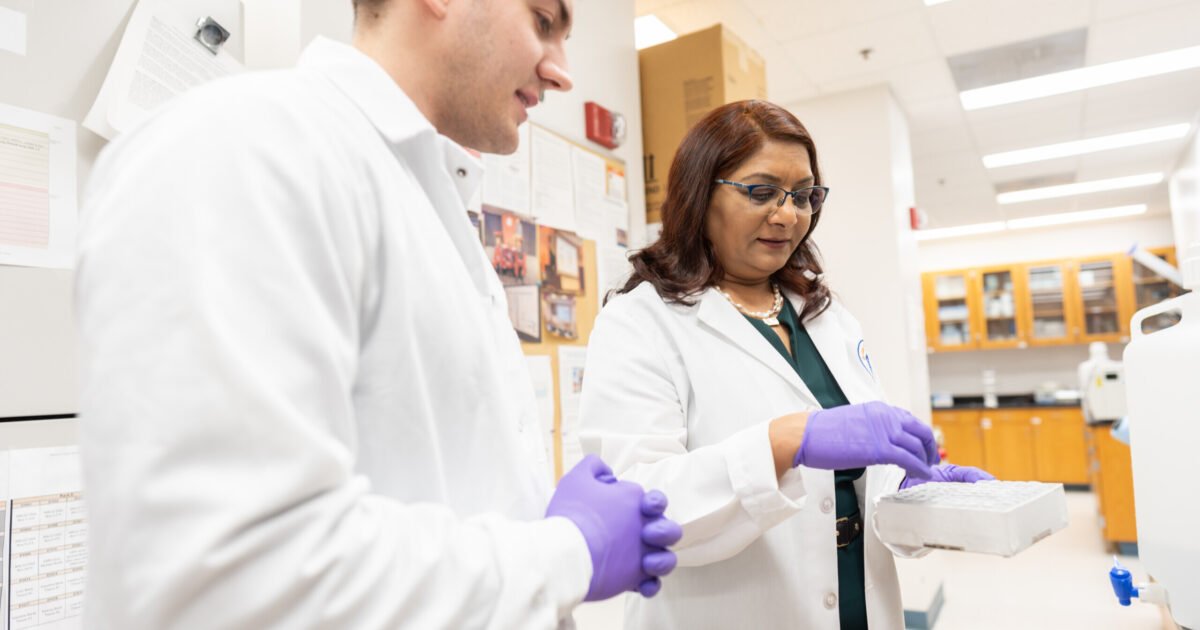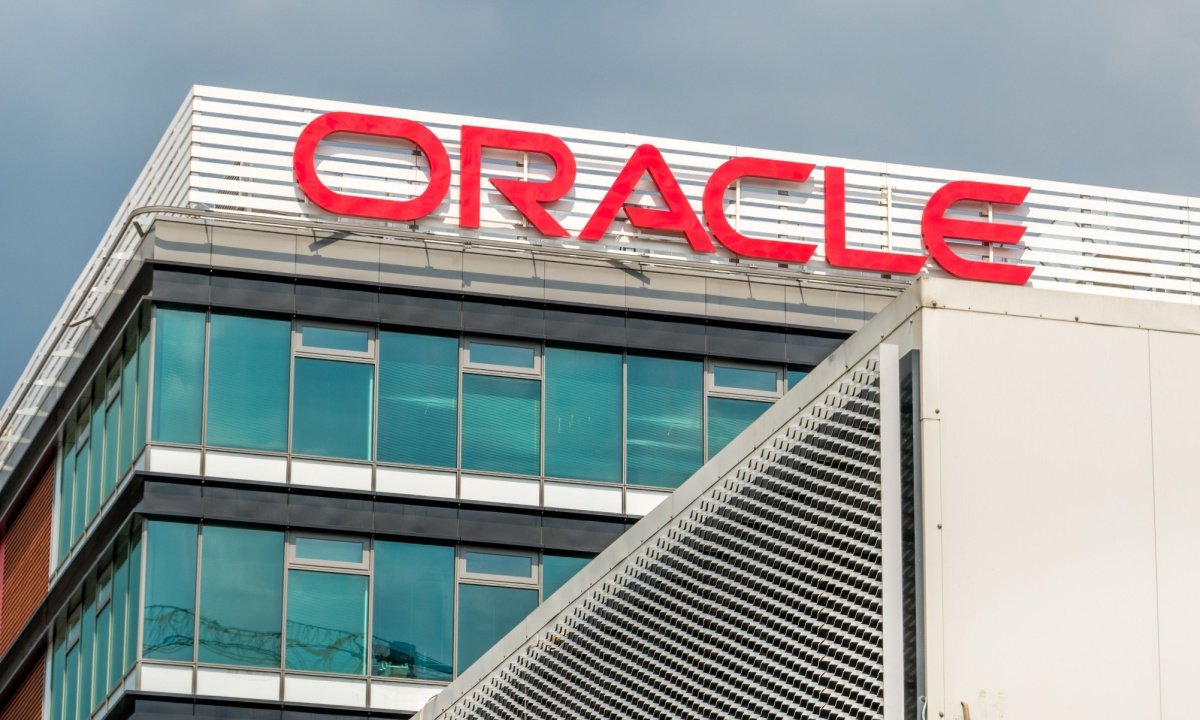AI Research
AI tool speeds acute myeloid leukemia diagnosis

GAINESVILLE, Fla. — A team of University of Florida Health researchers has developed a digital tool that uses artificial intelligence to accelerate the diagnosis of acute leukemias. The research was published in Nature Communications.
Acute myeloid leukemia, or AML, is a blood cancer originating in bone marrow and is often fatal. It’s one of the most common leukemias in adults and can progress quickly.
A team led by Jatinder Lamba, Ph.D., associate dean for research and graduate education and a professor of pharmacotherapy and translational research in the UF College of Pharmacy, developed the Acute Leukemia Methylome Atlas, or ALMA, by mapping specific tags in DNA referred to as methylation patterns across 3,300 leukemia samples. The result is a tool that can match patients to 27 leukemia subtypes as defined by the World Health Organization.
The atlas is an open-access reference web tool that lets any new patient’s DNA methylation results be placed among thousands of previously diagnosed cases, allowing for rapid diagnosis of the leukemia subtype. Using an algorithm, the atlas plots each patient as a point. Points that sit close together share similar methylation patterns and often the same underlying leukemia subtype or risk category. The atlas allows any patient sample to be compared to thousands of other cases, instantly showing how their cancer maps to a specific subtype.
Researchers have developed two AI-powered tools that can help clinicians predict how a patient’s disease might progress and their chances of survival. One tool estimates the likelihood of surviving five years based on genetic markers, while the other uses a smaller set of markers that could make quick lab tests possible to guide treatment decisions.
“Currently, clinicians often wait weeks for diagnostic lab results, but with our pipeline, this wait time can be reduced to 2-3 days for a preliminary diagnosis. This single-test assay, requiring only a laptop-sized sequencer, can be run in-house, lowering costs, widening access and improving long-term remission globally,” said Lamba, the Frank A. Duckworth Eminent Scholar Chair who also serves as a co-leader of the UF Health Cancer Center’s Cancer Targeting and Therapeutics research program. “By using our prognostic features, a clinician can predict whether the patient has a higher likelihood of having a relapse, allowing the health care team to make decisions about intensifying the patient’s therapy, monitoring the patient more closely or even reassessing the need for transplants.”
Lamba said the research team aims to explore its findings in a pilot clinical trial and to refine the ALMA into a tool for pathologists and clinicians. Future research will involve gathering data on patients with rare subtypes of AML to create an even more complete atlas, she said.
Francisco Marchi, a graduate student in the Lamba Lab, is a co-inventor of this technology and first author of the study. Other co-authors include Vivek Shastri, Ph.D., a research assistant professor of pharmacotherapy and translational research in the UF College of Pharmacy, along with faculty from the UF College of Medicine and the UF Health Cancer Center. UF graduate and undergraduate students also contributed.
AI Research
Nebius Raises $3.7 Billion in Wake of Microsoft AI Deal

Dutch cloud computing company Nebius has raised $3.75 million via sales of stock and convertible notes.
AI Research
Artificial Intelligence Stocks Rally as Nvidia, TSMC Gain on Oracle Growth Forecast

This article first appeared on GuruFocus.
Sep 11 – Oracle (ORCL, Financial) projected its cloud infrastructure revenue will surge to $114 billion by fiscal 2030, a forecast that triggered strong gains across artificial intelligence-related stocks.
The company also outlined plans to spend $35 billion in capital expenditures by fiscal 2026 to expand its data center capacity.
Shares of Oracle soared 36% on Wednesday on the outlook, as investors bet on rising demand for GPU-based cloud services. Nvidia (NASDAQ:NVDA), which supplies most of the chips and systems for AI data centers, climbed 4%. Broadcom (NASDAQ:AVGO), a key networking and custom chip supplier, gained 10%.
Other chipmakers also advanced. Advanced Micro Devices (AMD,) added 2%, while Micron Technology (MU, Financial) increased 4% on expectations for higher memory demand in AI servers. Taiwan Semiconductor Manufacturing Co. (NYSE:TSM), which produces chips for Nvidia and other AI players, rose more than 4% after reporting a 34% jump in August sales.
Server makers Super Micro Computer (SMCI, Financial) and Dell Technologies (DELL) each rose 2%, supported by their role in assembling Nvidia-powered systems. CoreWeave (CRWV), an Oracle rival in the neo-cloud segment, advanced 17% as investors continued to bet on accelerating AI compute demand.
AI Research
Oracle Health Deploys AI to Tackle $200B Administrative Challenge

Oracle Health introduced tools aimed at easing administrative healthcare burdens and costs.
-

 Business2 weeks ago
Business2 weeks agoThe Guardian view on Trump and the Fed: independence is no substitute for accountability | Editorial
-
Tools & Platforms1 month ago
Building Trust in Military AI Starts with Opening the Black Box – War on the Rocks
-

 Ethics & Policy2 months ago
Ethics & Policy2 months agoSDAIA Supports Saudi Arabia’s Leadership in Shaping Global AI Ethics, Policy, and Research – وكالة الأنباء السعودية
-

 Events & Conferences4 months ago
Events & Conferences4 months agoJourney to 1000 models: Scaling Instagram’s recommendation system
-

 Jobs & Careers2 months ago
Jobs & Careers2 months agoMumbai-based Perplexity Alternative Has 60k+ Users Without Funding
-

 Podcasts & Talks2 months ago
Podcasts & Talks2 months agoHappy 4th of July! 🎆 Made with Veo 3 in Gemini
-

 Education2 months ago
Education2 months agoMacron says UK and France have duty to tackle illegal migration ‘with humanity, solidarity and firmness’ – UK politics live | Politics
-

 Education2 months ago
Education2 months agoVEX Robotics launches AI-powered classroom robotics system
-

 Funding & Business2 months ago
Funding & Business2 months agoKayak and Expedia race to build AI travel agents that turn social posts into itineraries
-

 Podcasts & Talks2 months ago
Podcasts & Talks2 months agoOpenAI 🤝 @teamganassi

